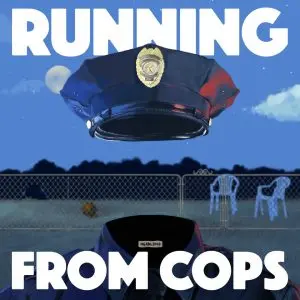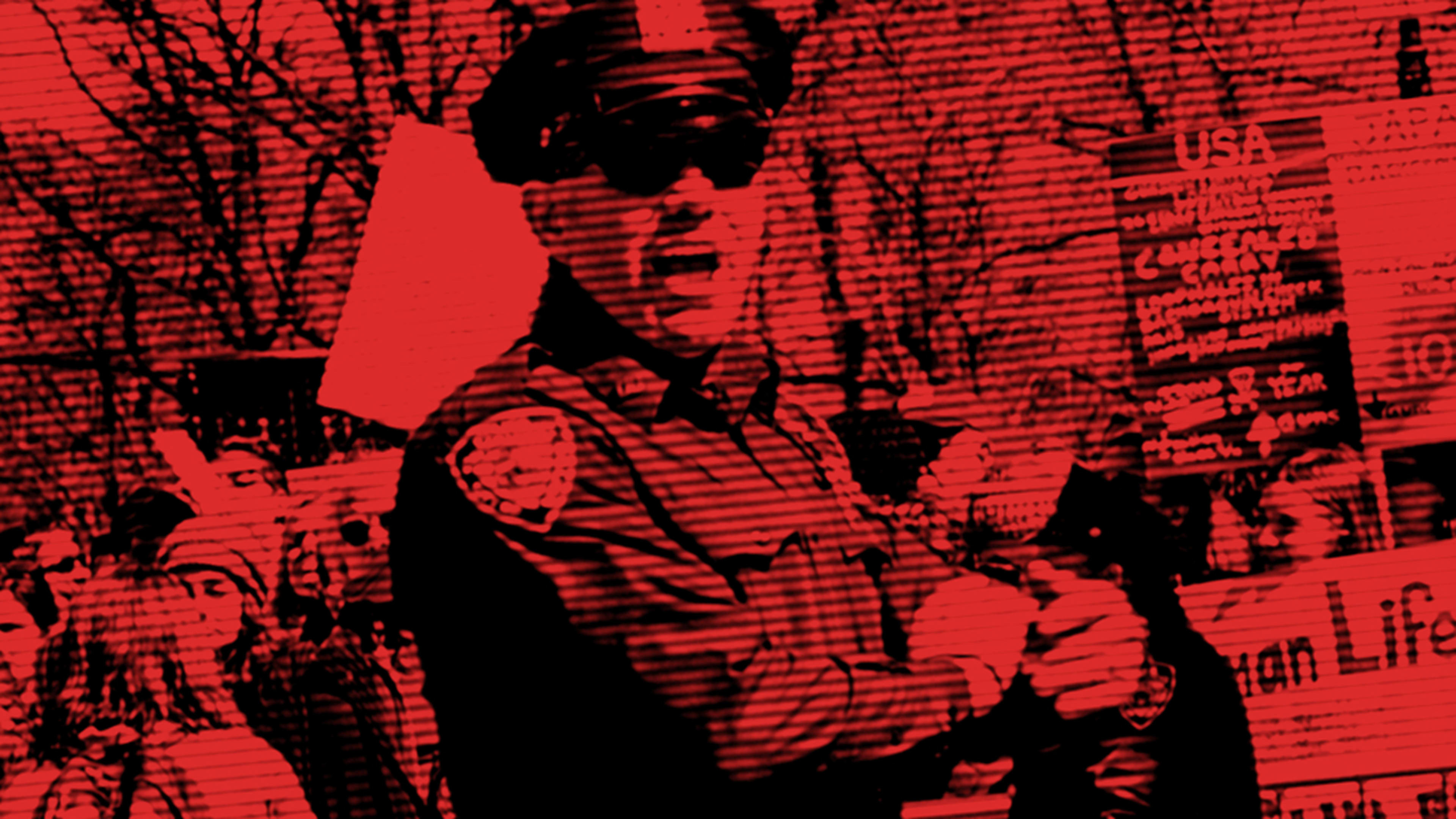At some point in your life, chances are you’ve watched an episode of Cops. Drunk arrests, car chases, foot chases, incoherent yelling, taser hits, door-crashing—it’s like the junk food of television. For the past 30 years, the Fox reality show has depicted the workaday duties of police officers across America and how they deal with the less-than law-abiding members of society. The series has been on so long that for anyone under 50 years old and not in regular contact with police activity, Cops has likely played a role in your view of policing and who is committing crimes. You absolutely know the theme song.
Now a new six-episode podcast from Pineapple Street Media and Dan Taberski examines Cops‘ role in culture—specifically, how it has served up a distorted reality of law enforcement. Running From Cops is the latest podcast from Taberski, who hosted Missing Richard Simmons and Surviving Y2K. Taberski and six producers conducted an 18-month investigation, did more than 100 interviews, and watched, catalogued, and analyzed 846 episodes of Cops.
“I’ve been watching Cops all my life,” Taberski says. “It’s not something you brag about, but like a lot of people, I’ve always watched TV as wallpaper, as something that’s on in the background. [With Cops,] I’ve always wondered, how are they allowed to do this? Why are the police participating? How does this work?”
https://twitter.com/maxlinsky/status/1120372135384506369
Given the longevity and pop cultural influence of Cops—it has spawned many satires, most notably Comedy Central’s long-running Reno 911!—the reality show has been pivotal in defining how we see police. “Before that show, there was no cultural depiction of what police were doing in action,” says Taberski. “Unless you witnessed it firsthand, you didn’t see it. The stuff on TV, news conferences, and things like that were all after the fact. Or it was fiction like Hill Street Blues. It’s impossible to overstate the impact and power a show like that has to define the way we see police.”
The problem is that Cops is more reality show than documentary, and Taberski, a veteran reality show producer, knows there’s a huge disparity between reality show “reality” and documentary reality. In the course of their investigation, the Running from Cops team discovered that the police had final cut approval for the series. “When you start to look at the contractual relationship between producers and police–and we got our hands on a few of those contracts between Cops and the police departments–I think people will be really surprised how much the police are controlling their own message on the show,” Taberski says. Watching the show in that light, he adds, “It just shows how dicey it is to be using reality-show storytelling techniques for something so real and important as policing, and how your biases can creep in even unintentionally.”
Taberski and the producers also found that while prostitution, drugs, and violence make up 58% of crime depicted on Cops, according to the FBI, those three categories only account for barely 17% of crime IRL.

“Projecting a sense of danger is essential for building the need for policing, both in terms of budgets, but also ideologically,” says The End of Policing author Alex Vitale in the podcast’s third episode. “There’s been a dramatic crime drop over the course of Cops’ TV run, yet people still have the sense that we’re in as much danger as ever, and the only thing holding society together is our reliance on the police.”
Or as Taberski says in one episode, it often feels like the world is a zombie movie, and the “only thing between them and us is the thin blue line.” Those “zombies” are too often poor and non-white. After a 1994 study by the civil rights group Color of Change found that Cops disproportionately featured people of color as criminals, the show branched out to paler environs like Portland, Oregon, and Seattle. Yet the first segment of each episode–the one that reality show producers know hook people in–remained largely packed with people of color.
Taberski says the podcast is far from anti-police. The oversimplified presentation of police on Cops is also damaging to the nuanced work done by everyday officers. “It flattens everyone out. It’s not about being anti-police at all, it’s about taking something incredibly complex and making it really simple. That’s what Cops does,” he says. “Doing that to something as serious as policing is dangerous.”
Taberksi logged thousands of hours watching Cops‘ version of reality and stumbled on the most surprising discovery within the last four weeks of the team’s 18-month investigation. As Tom Arnold’s ongoing quest for Donald Trump’s uncut tapes from The Apprentice has taught us, reality shows go to great lengths to lock down unedited raw footage. They don’t want anyone to see how the sausage is made. But Taberski and his team managed to get the raw footage from a specific segment from an episode of Cops. The result will play out in the podcast’s final episodes, so no spoilers.
“I will say that I’m still sincerely, truly shocked at what it showed, and what it told us about the differences between ‘reality’ and reality. It’s truly shocking,” he says. “It’s in the last episode and it changed everything for me. I can’t imagine what else is out there.”
Recognize your brand’s excellence by applying to this year’s Brands That Matter Awards before the early-rate deadline, May 3.
